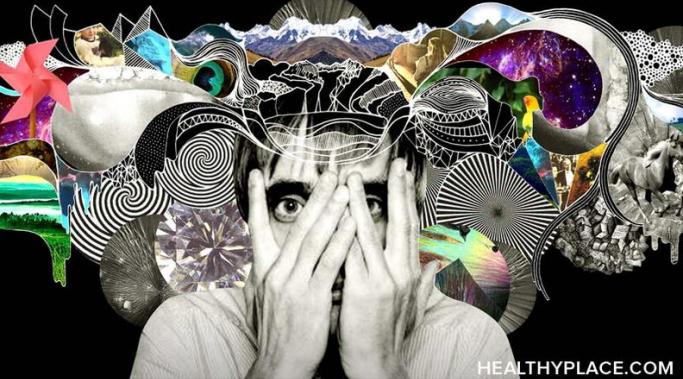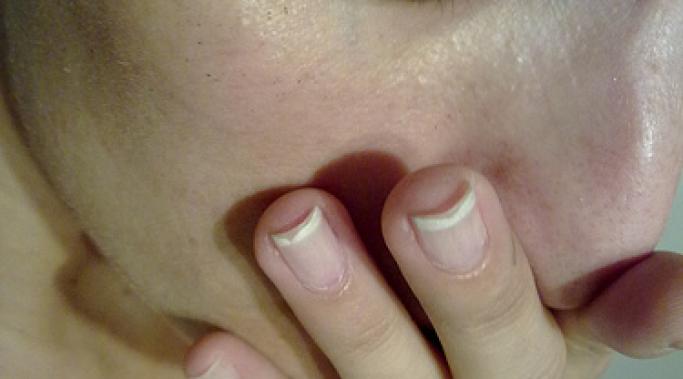Blogs
(cont. from part 1 of story)
My son’s bipolar disorder and ADHD treatment has been a constant source of conflict between his father and I. Non-compliance with Bob’s prescribed medication regimen has been an ongoing problem for years, and has once again become a problem following a frightening drug reaction. Despite the devastating effects bipolar medication non-compliance could have on Bob’s physical and emotional health, there are sadly few resources I can go to for help.
Epileptics often get what is known as an aura before they have a seizure. An aura is a sensation like hearing voices or seeing colored lights or experiencing numbness. An aura might be present a few seconds or a few minutes before the seizure depending on the person. It’s an early warning sign of a brain misfire. Similarly, I experience signs, an aura if you will, of upcoming hypomanias.
It seems many people think of Dissociative Identity Disorder as the pinnacle of crazy. But if I've ever truly lost my mind I did so when I was trying desperately to escape DID. It was when the confusion, fear, loneliness, and shame I felt in the aftermath of my Dissociative Identity Disorder diagnosis periodically reached critical mass that I panicked and, in fits of desperation, clung to ludicrous, even dangerous thoughts.
Depression and hope are natural enemies. When it comes to recovery from depression, sometimes others have to do the hoping for you. Graeme Cowan survived what his psychiatrist described as the worst depression he ever treated. Graeme says his parents, and the faith they had in him, helped him to eventually overcome the severe depression that nearly ended his life.
It is still hard to confess that from February through May of this year, I created a alternative persona called Ana Magersucht and became enmeshed in the pro-anorexia lifestyle. I joined several websites devoted to pro-anorexia under this alternative name, and began to buy into the idea of anorexia as a lifestyle choice and that recovery was optional. My eating disorders psychiatrist quickly became alarmed when I talked about what I was doing, and immediately suggested that I be hospitalized. I wasn't at my lowest weight yet, but I was heavily restricting and it was significantly affecting my health. But that was not his biggest concern. He was most concerned with my growing obsession with pro-anorexia.
In my current series, Diary of a Newly Diagnosed Dissociative, I've been writing about what I've observed to be common emotional reactions to receiving a Dissociative Identity Disorder diagnosis. I say, "emotional reactions," but I don't know if that really does justice to the enormous impact a DID diagnosis can and often does have. When I say I was confused, I mean I was nearly incapacitated by confusion. When I say I was afraid and lonely, I mean I was almost paralyzed by fear and loneliness. It's with that same respect for the degree of overwhelming emotion that I talk to you today about shame.
OK, so I admit it, I haven’t spent a whole lot of time thinking about gender’s relationship to depression. I know the basic pieces of information: more women are diagnosed with depression than men, and more women attempt suicide while more men actually commit suicide.
But there is a lot to understand beyond that. Did you know that men are up to 15 times more likely to commit suicide than women?
or, How Not to Mistake Phish Food for Your Self-Esteem
You're Not An Idiot
Trying Harder Doesn't Always Work
There's a lot of talk about positive thinking and its links with self-esteem but little that talks about tone. This made me feel really stupid, when I couldn't seem to think my way out of my mental illness.
Tone Matters
Living with Dissociative Identity Disorder can be excruciatingly lonely. I endured my loneliest moments with DID in the first few years after diagnosis. Granted, my primary relationship at the time was drawing its dramatic last breaths and I'd recently lost my job. I had virtually no support system and was barely able to feed myself and my child. There's no doubt my loneliness was the result of more than just my Dissociative Identity Disorder diagnosis. But when I look back through my diaries from that time period, it's clear the diagnosis was partially to blame. In hindsight, it's easy to see why.
As I mentioned in this week's audio, Bob recently suffered a reaction to one of his psychiatric medications. He’s fine now, but the discussions between his father and I that have followed leave me wondering if he’ll survive the fallout.








